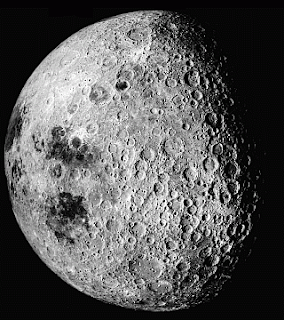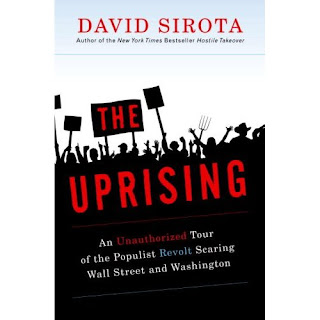If you take this whole health care legislation thing seriously these days like I do, you should take
.
BILL MOYERS: So why are you speaking out now?
WENDELL POTTER: I didn't intend to, until it became really clear to me that the industry is resorting to the same tactics they've used over the years, and particularly back in the early '90s, when they were leading the effort to kill the Clinton plan.
BILL MOYERS: But during this 15 years you were there, did you go to them and say, "You know, I think we're on the wrong side. I think we're fighting the wrong people here."
WENDELL POTTER: You know, I didn't, because for most of the time I was there, I felt that what we were doing was the right thing. And that I was playing on a team that was honorable. I just didn't really get it all that much until toward the end of my tenure at Cigna.
BILL MOYERS: What did you see?
WENDELL POTTER: Well, I was beginning to question what I was doing as the industry shifted from selling primarily managed care plans, to what they refer to as consumer-driven plans. And they're really plans that have very high deductibles, meaning that they're shifting a lot of the cost off health care from employers and insurers, insurance companies, to individuals. And a lot of people can't even afford to make their co-payments when they go get care, as a result of this. But it really took a trip back home to Tennessee for me to see exactly what is happening to so many Americans. I--
BILL MOYERS: When was this?
WENDELL POTTER: This was in July of 2007.
BILL MOYERS: You were still working for Cigna?
WENDELL POTTER: I was. I went home, to visit relatives. And I picked up the local newspaper and I saw that a health care expedition was being held a few miles up the road, in Wise, Virginia. And I was intrigued.
BILL MOYERS: So you drove there?
WENDELL POTTER: I did. I borrowed my dad's car and drove up 50 miles up the road to Wise, Virginia. It was being held at a Wise County Fairground. I took my camera. I took some pictures. It was a very cloudy, misty day, it was raining that day, and I walked through the fairground gates. And I didn't know what to expect. I just assumed that it would be, you know, like a health-- booths set up and people just getting their blood pressure checked and things like that.
But what I saw were doctors who were set up to provide care in animal stalls. Or they'd erected tents, to care for people. I mean, there was no privacy. In some cases-- and I've got some pictures of people being treated on gurneys, on rain-soaked pavement.
And I saw people lined up, standing in line or sitting in these long, long lines, waiting to get care. People drove from South Carolina and Georgia and Kentucky, Tennessee-- all over the region, because they knew that this was being done. A lot of them heard about it from word of mouth.
There could have been people and probably were people that I had grown up with. They could have been people who grew up at the house down the road, in the house down the road from me. And that made it real to me.
BILL MOYERS: What did you think?
WENDELL POTTER: It was absolutely stunning. It was like being hit by lightning. It was almost-- what country am I in? I just it just didn't seem to be a possibility that I was in the United States. It was like a lightning bolt had hit me.
BILL MOYERS: People are going to say, "How can Wendell Potter sit here and say he was just finding out that there were a lot of Americans who didn't have adequate insurance and needed health care? He'd been in the industry for over 15 years."
WENDELL POTTER: And that was my problem. I had been in the industry and I'd risen up in the ranks. And I had a great job. And I had a terrific office in a high-rise building in Philadelphia. I was insulated. I didn't really see what was going on. I saw the data. I knew that 47 million people were uninsured, but I didn't put faces with that number.
Just a few weeks later though, I was back in Philadelphia and I would often fly on a corporate aircraft to go to meetings.
And I just thought that was a great way to travel. It is a great way to travel. You're sitting in a luxurious corporate jet, leather seats, very spacious. And I was served my lunch by a flight attendant who brought my lunch on a gold-rimmed plate. And she handed me gold-plated silverware to eat it with. And then I remembered the people that I had seen in Wise County. Undoubtedly, they had no idea that this went on, at the corporate levels of health insurance companies.
BILL MOYERS: But you had, all these years, seen premiums rising. People purged from the rolls, people who couldn't afford the health care that Cigna and other companies were offering. This is the first time you came face to face with it?
WENDELL POTTER: Yeah, it was. You know, certainly, I knew people, and I talked to people who were uninsured. But when you're in the executive offices, when you're getting prepared for a call with an analyst, in the financial medium, what you think about are the numbers. You don't think about individual people. You think about the numbers, and whether or not you're going to meet Wall Street's expectations. That's what you think about, at that level. And it helps to think that way. That's why you-- that enables you to stay there, if you don't really think that you're talking about and dealing with real human beings.
BILL MOYERS: Did you go back to corporate headquarters and tell them what you had seen?
WENDELL POTTER: I went back to corporate headquarters. I was trying to process all this, and trying to figure out what I should do. I did tell many of them about the experience I had. And the trip. I showed them some pictures I took while I was down there. But I didn't know exactly what I should do.
You know, I had bills of my own. And it was hard to just figure out. How do I step away from this? What do I do? And this was one of those things that made me decide, "Okay, I can't do this. I can't keep-- I can't." One of the books I read as I was trying to make up my mind here was President Kennedy's "Profiles in Courage."
And in the forward, Robert Kennedy said that one of the president's, one of his favorite quotes was a Dante quote that, "The hottest places in hell are reserved for those who, in times of moral crisis, maintain a neutrality." And when I read that, I said, "Oh, jeez, I-- you know. I'm headed for that hottest place in hell, unless I say something."
BILL MOYERS: Your own resume says, and I'm quoting. "With the chief medical officer and his staff, Potter developed rapid response mechanisms for handling media inquiries pertaining to complaints." Direct quote. "This was highly successful in keeping most such inquiries from becoming news stories, at a time when managed care horror stories abounded." I mean, you knew there were horror stories out there.
WENDELL POTTER: I did. I did.
BILL MOYERS: You put these techniques to work, representing Cigna doing the Nataline Sarkisyan case, right?
WENDELL POTTER: That's right.
BILL MOYERS: And that was a public relations nightmare, you called it. Right?
WENDELL POTTER: It was. It was just the most difficult. We call them high profile cases, when you have a case like that — a family or a patient goes to the news media and complains about having some coverage denied that a doctor had recommended. In this case, Nataline Sarkisyan's doctors at UCLA had recommended that she have a liver transplant. But when the coverage request was reviewed at Cigna, the decision was made to deny it.
It was around that time, also, that the family had gone to the media, had sought out help from the California Nurses Association and some others to really bring pressure to bear on Cigna. And they were very successful in getting a lot of media attention, and nothing like I had ever seen before.
[PROTESTERS: Shame on Cigna! Shame on Cigna!]
WENDELL POTTER: It got everyone's attention. Everyone was focused on that in the corporate offices.
BILL MOYERS: You were also involved in the campaign by the industry to discredit Michael Moore and his film "Sicko" in 2007. In that film Moore went to several countries around the world, and reported that their health care system was better than our health care system, in particular, Canada and England. Take a look at this.
[snip]
MICHAEL MOORE: Even with insurance, there's bound to be a bill somewhere. So where's the billing department?
BRITISH WOMAN #1: There isn't really a billing department.
BRITISH WOMAN #2: There's no such thing as a billing department.
MICHAEL MOORE: What did they charge you for that baby?
BRITISH WOMAN #3: Sorry?
MICHAEL MOORE: You've got to pay before you can get out of here, right?
BRITISH WOMAN #3: No.
BRITISH MAN #1: No, no, no. Everything's on NHS.
BRITISH WOMAN #3: This is NHS.
BRITISH MAN #1: You know, it's not America.
BILL MOYERS: So what did you think when you saw that film?
WENDELL POTTER: I thought that he hit the nail on the head with his movie. But the industry, from the moment that the industry learned that Michael Moore was taking on the health care industry, it was really concerned.
BILL MOYERS: What were they afraid of?
WENDELL POTTER: They were afraid that people would believe Michael Moore.
BILL MOYERS: We obtained a copy of the game plan that was adopted by the industry's trade association, AHIP. And it spells out the industry strategies in gold letters. It says, "Highlight horror stories of government-run systems." What was that about?
WENDELL POTTER: The industry has always tried to make Americans think that government-run systems are the worst thing that could possibly happen to them, that if you even consider that, you're heading down on the slippery slope towards socialism. So they have used scare tactics for years and years and years, to keep that from happening. If there were a broader program like our Medicare program, it could potentially reduce the profits of these big companies. So that is their biggest concern.
 Woo Hoo! This one's a gem. From Raw Story:
Woo Hoo! This one's a gem. From Raw Story:






